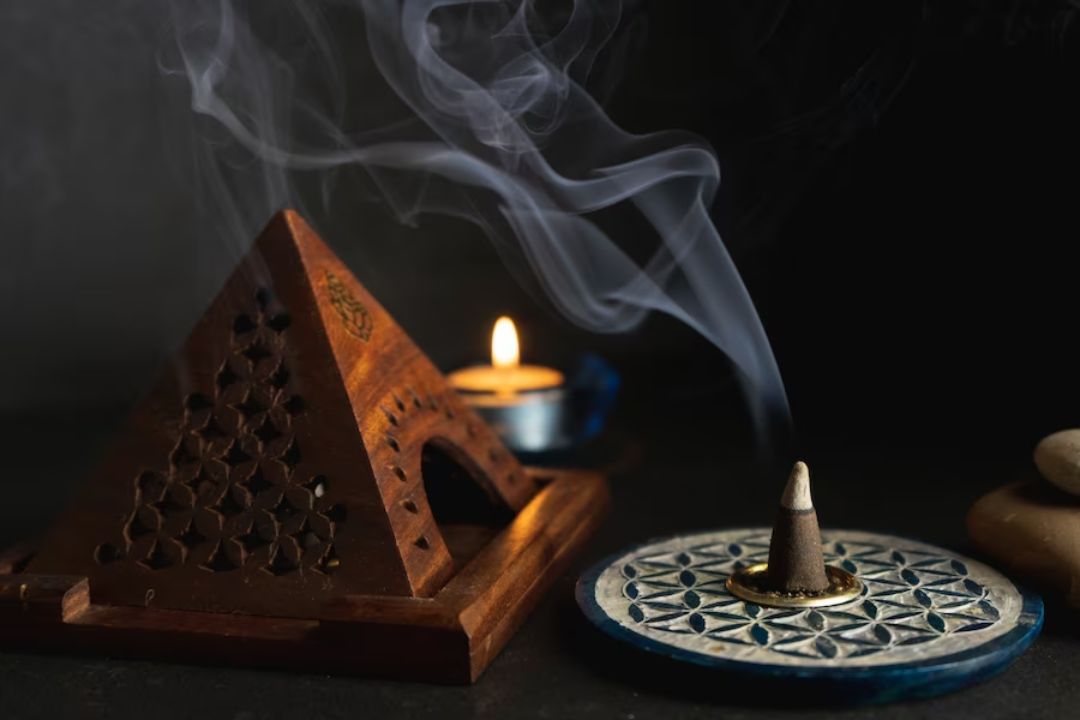In the rich tapestry of religious and spiritual practices across cultures, there exists a timeless tradition that transcends boundaries and spans centuries: the burning of dhoop. This sacred ritual, deeply ingrained in the fabric of various traditions, holds the power to cleanse, sanctify, and elevate the atmosphere of sacred spaces. As the fragrant smoke rises, it carries with it the prayers, intentions, and aspirations of devotees, creating a bridge between the earthly and the divine.
Dhoop, also known as incense resin, is a blend of natural ingredients such as herbs, spices, and aromatic resins, meticulously crafted to create a fragrant offering to the divine. From the ancient temples of India to the serene monasteries of Tibet, the burning of dhoop has been an integral part of religious ceremonies, rituals, and devotional practices for millennia.
One of the most common forms of dhoop is made from a blend of aromatic resins such as frankincense, myrrh, and benzoin, along with herbs and spices like sandalwood, cloves, and cinnamon. This aromatic blend is carefully mixed and formed into small cones or sticks, which are then lit to release their fragrant smoke.
The act of burning dhoop is more than just a sensory experience; it's a profound spiritual practice that symbolizes purification, offering, and devotion. As the smoke rises, it carries with it the prayers and intentions of the devotee, creating a sacred atmosphere that facilitates connection with the divine.
In Hinduism, the burning of dhoop is an essential part of puja ceremonies, where it is offered to the deities as a gesture of reverence and devotion. The fragrance of dhoop is believed to purify the air and create a conducive atmosphere for prayer, meditation, and contemplation.
Similarly, in Buddhism, dhoop plays a central role in rituals and ceremonies, symbolizing the transience of life and the impermanence of all things. The act of burning dhoop is seen as a reminder of the fleeting nature of existence and the importance of cultivating mindfulness and compassion in every moment.
In Christianity, the burning of incense has a long history dating back to ancient times, with its sweet fragrance symbolizing the prayers of the faithful rising to heaven. Today, incense is still used in Catholic and Orthodox churches during liturgical services, adding a sense of solemnity and transcendence to the worship experience.
Beyond its spiritual significance, burning dhoop also has practical benefits for purifying the air and creating a clean and pleasant environment. Scientific research has shown that certain aromatic compounds found in dhoop have antimicrobial properties and can help reduce airborne bacteria and viruses, making it an effective tool for cleansing and sanitizing sacred spaces.
As we journey through life, navigating its twists and turns, joys and sorrows, the ritual of burning dhoop reminds us to pause, to breathe, and to connect with something greater than ourselves. In its fragrant smoke, we find solace, inspiration, and a sense of belonging to a timeless and universal tradition that unites us all in our search for meaning and purpose.
So, the next time you find yourself in need of clarity, comfort, or spiritual nourishment, why not light a stick of dhoop and let its fragrant smoke transport you to a place of peace and serenity? In its gentle embrace, may you find the courage to face life's challenges with grace and resilience, knowing that you are supported and held by forces far greater than yourself.

